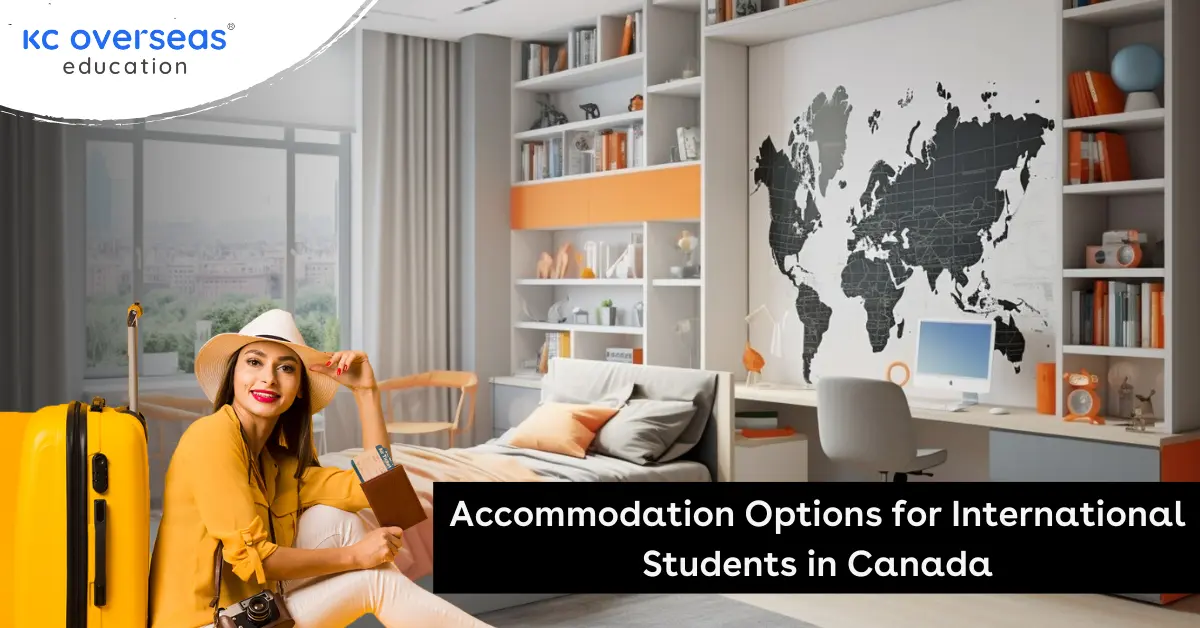The study abroad journey in Canada is filled with many academic and professional opportunities. From on-campus residences to off-campus apartments, the choices to live in Canada as an international student are immense. However, exploring diverse types of housing tailored according to your living needs can take time and effort.
This article delves into the prerequisites of the types of accommodation in Canada, including insights and considerations associated with these living arrangements. Knowing the types of accommodation beforehand is essential and a smart move for stress-free study in Canada.
Types of Housing in Canada for International Students
Find below some of the popular housing options in Canada that students from other county of origin can consider opting for:
On Campus Accommodation
Overseas students enrolled in a higher education course often choose on-campus accommodation during their 1st year in Canada. Living the starting year in the university is an excellent way to network and connect with local and other international students.
There are two types of living options offered by the campus facility:
-
Residential Rooms
Living in an institution housing on or near the campus area will be considered as ‘Living in Residence.’ Depending on your institution, you get options between single and shared rooms. Although some of the top universities in Canada only offer shared room options to newly enrolled students in the residence area. Residential rooms are often furnished with a meal plan included in the cost of living.
Some of the basic amenities of residential room options include:
-
- Private room
-
- Shared bathroom
-
- Kitchen with basic appliances
-
- Laundry and Wi-Fi facilities
-
Apartments
Some Canadian Universities offer apartments to enrolled students where they need to share the space with others. Like private arrangements, apartments offered by institutions include a kitchen and a bathroom.
The benefits of living on-campus include easy access to the university library, proximity to campus, opportunities to make friends from other countries and a smoother transition as an international student.
Off-Campus Accommodation
One of the most prominent reasons behind the popularity of off-campus accommodation is the lower rental price. However, you must pay for additional items such as furniture, bedding, cooking utensils, kitchen appliances, electricity, Wi-Fi connection and other amenities.
Living Options in off-campus accommodation include:
- Private Housing/ Shared Apartments
Off-campus apartments are popular for international students seeking greater independence and flexibility. Canadian cities offer various rental housing options, from shared apartments to private studios. Off-campus living allows students to experience the local community and explore diverse neighborhoods and often comes with more customizable living space.
This category offers various housing options such as bachelor apartments, 2–3-bedroom apartments or duplexes. According to your comfort and budget, you can choose between living alone or sharing the roof with others (this includes students from other institutions and even working professionals.)
- Homestays/ Private Room
For those seeking an immersive cultural experience, homestays or private rooms are a unique opportunity. In this option, you often get a room in a local family’s home where you are required to access shared kitchens, bathrooms and living rooms. Sometimes, a private room comes with an attached bathroom with 1 or more daily meals. While offering a supportive environment, homestays may require adherence to household rules and norms, contributing to a structured and enriching experience for you to live in.
The benefits of living off-campus include freedom and privacy in your personal life. Furthermore, shared housing options help you save money on house rent, electricity, and Wi-Fi connections.
In conclusion, choosing suitable accommodation in Canada is a prominent part of a successful study abroad journey. Whatever accommodation type you opt for comes with unique benefits and considerations. However, conducting in-depth research to manage living in Canada is recommended. You can also incorporate part-time jobs and look for scholarships in Canada for additional savings.
We hope you get the best deal on whatever accommodation type you choose!



